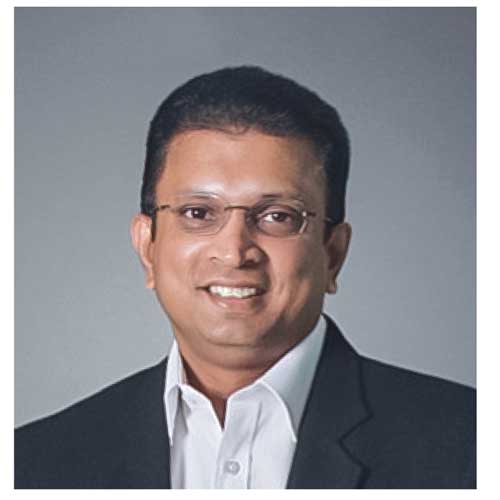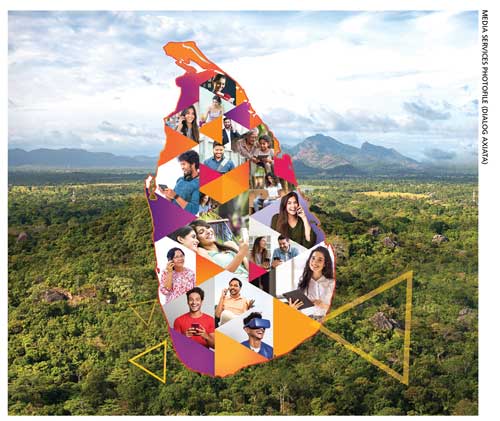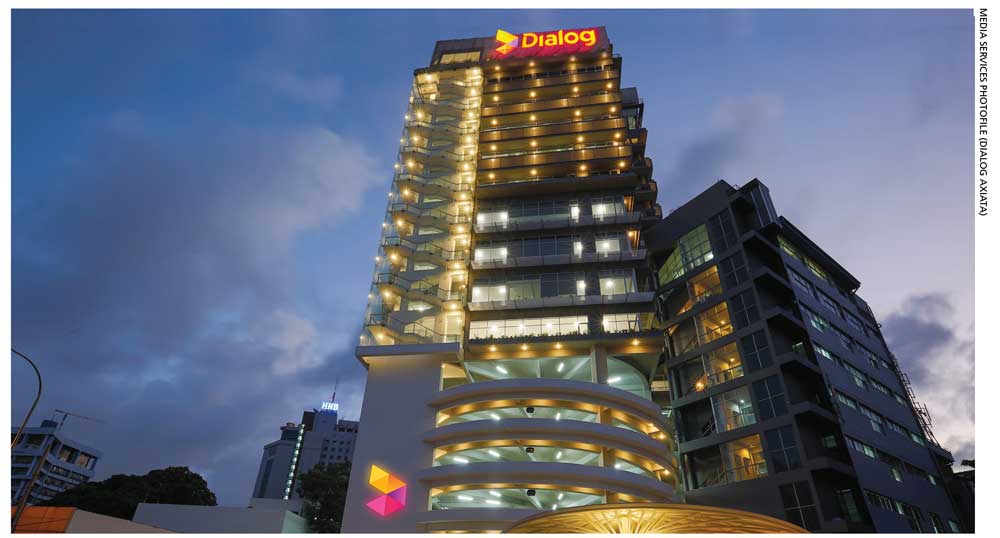DIALOG AXIATA

Director
Group Chief Executive
Q: How important is it for organisations to integrate more transparency and accountability into their reporting?
A: Integrating transparency and accountability into reporting processes is paramount for any organisation. It cultivates investor confidence and stakeholder trust by openly communicating the impact of sustainability and social responsibility initiatives while fostering customer loyalty.
Such transparency ensures adherence to ethical practices, benefitting both the organisation and society at large. Additionally, it serves as a crucial risk management tool, addressing financial, operational and governance issues – mitigating risks related to corruption and bribery.
Dialog Axiata exemplifies this approach by maintaining accurate, transparent records, and adhering to high standards such as the International Financial Reporting Standards (IFRS) and Global Reporting Initiative (GRI), ensuring both integrity and compliance, ultimately reinforcing its commitment to ethical practices and the highest standards of corporate governance.
Q: What does it mean to be ranked among the top 125 listed companies in Sri Lanka in the latest Transparency in Corporate Reporting Assessment (TRAC) by Transparency International Sri Lanka (TISL)?
A: Being ranked among the top 125 listed companies in Sri Lanka in the TRAC report by TISL is a notable accolade that signifies our dedication to transparency, ethical reporting and responsible governance.
For Dialog, this placement is not just an acknowledgement of its robust corporate governance systems but also a source of immense pride for its employees, who see their efforts and dedication reflected in this recognition.
This achievement underlines our commitment to maintaining high transparency standards, and serves as both motivation and a responsibility to all Sri Lankans as the most valuable brand in the country.
It encourages the company to drive its purpose of empowering and enriching the lives of Sri Lankans and local enterprises, while recognising the ongoing duty to enhance and sustain transparency and accountability practices.

Q: And what is the role of the private sector in Sri Lanka’s quest to combat corruption? What measures are being taken by your organisation in this regard?
A: In Sri Lanka, the private sector’s role in combatting corruption is crucial and at Dialog, we are deeply committed to this endeavour through strict adherence to ethical standards and anti-corruption measures.
Emphasising core values of ‘Uncompromising Integrity and Responsible Leadership,’ Dialog Axiata has established a zero tolerance policy towards bribery and corruption, ensuring transparency and accountability across all operations.
The company’s anti-bribery and anti-corruption (ABAC) efforts are led from the top with strong governance from the board of directors, group CEO and senior management – setting a tone for ethical conduct across the organisation. This is further supported by stringent ABAC and no gift policies, independent third party compliance assessments and a dedicated ABAC programme overseen by the Board Risk and Compliance Committee.
Dialog Axiata’s commitment to embedding ABAC principles into its culture is evident through various management steering committees, mandatory ABAC training for all employees, and accessible channels for guidance and reporting violations. These comprehensive measures underscore Dialog Axiata’s dedication to fostering a corruption free business environment in Sri Lanka, highlighting the organisation’s leadership in ethical business practices.
Q: Could you cite a few examples of best practices in your organisation regarding gender and non-discrimination policies?
A: Our organisation prides itself on integrating diversity, equity and inclusion (DEI) principles into the fabric of our operations. We have a strong commitment to gender equality and the eradication of discrimination.
Last year, we advanced our DEI agenda by ensuring women have significant representation in decision-making processes, acknowledging the importance of diverse voices in our growth.
In addition, our efforts extend beyond gender diversity, focussing on inclusivity for differently abled individuals.
We continued to create inclusive workplace environments for persons with disabilities (PWD), and launched inclusive customer products such as DeafTawk, Petralex and a PWD-friendly website.
In fostering inclusivity within communities, we continued to empower the Ratmalana Audiology Centre and Jaffna Speech Therapy Centre, established to provide necessary testing and treatment for children and adults who have hearing and speech difficulties; launched the Nethsuwaya programme to provide educational support for vision impaired children; and assisted women through our Yeheli.lk platform.
These actions are guided by our comprehensive DEI framework, which underscores a pledge to forge an inclusive and equitable workplace and community for everyone.

Q: What are your organisation’s plans going forward?
A: As we look to the future, our road map is characterised by a commitment to transparency in every endeavour we undertake. We will continue to share our expansion plans, which involve extending services into new regions or markets. Additionally, as we introduce new products and services, we will continue to maintain an open dialogue focussing on the features, functionalities and benefits they will bring to our users.
Lastly, the backbone of our forward momentum is technological innovation. From advancements in network infrastructure to significant enhancements in customer experience, we are committed to sharing these developments with fellow Sri Lankans. Our aim is to keep all stakeholders informed about how these developments will shape the future, ensuring we move forward together in full transparency and deliver the ‘Future Today.’
Website: www.dialog.lk




